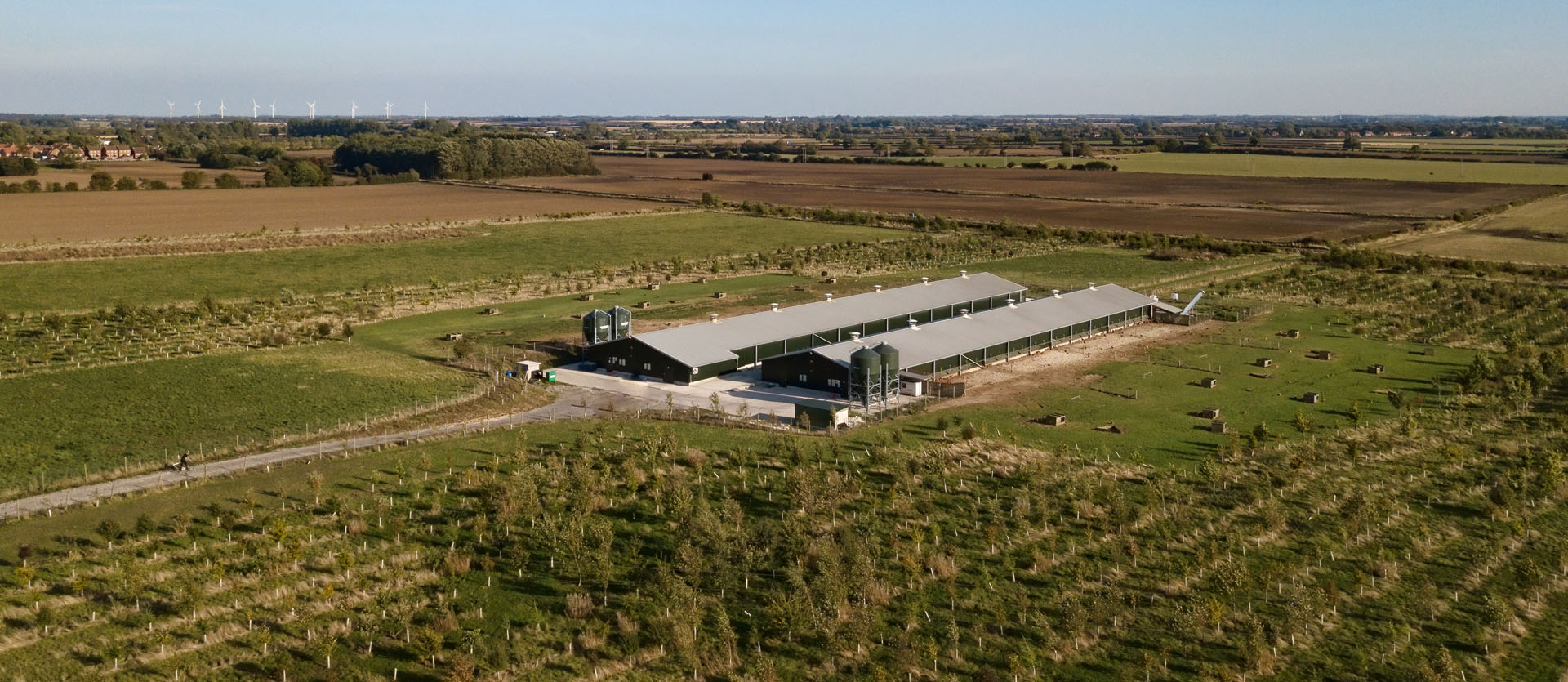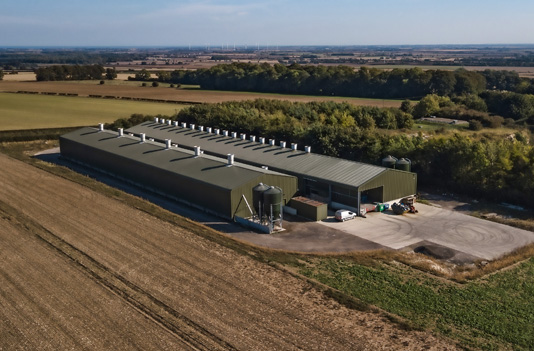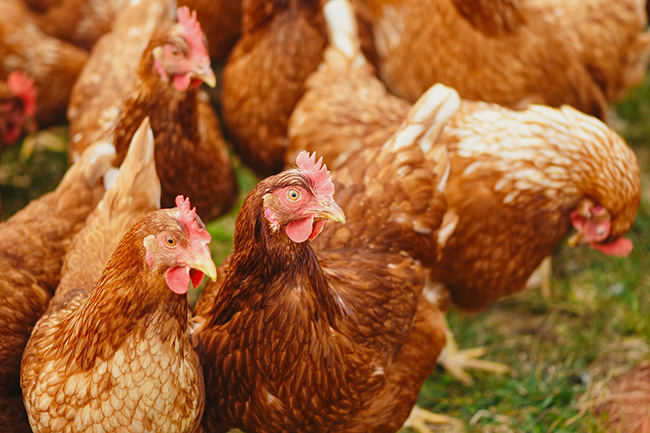Nafferton Wold Farms is a business that was set up by Jim Dewhirst in 1997 following the acquisition of 2 farms in the Nafferton area. Originally an arable farming business the Company now rents its land out to its sister business, E. Reed & Son, and focuses its attention on its egg laying operation. The egg laying enterprise comprises 115,000 hens across 3 sites, as detailed below. The business also operates a 500kW EWT wind turbine on Nafferton Wold and a 100kW ground mounted photovoltaic array at the free-range layer unit.
Far West Free-Range Unit
This 32,000 bird free-range unit was built in 2010 on 40 acres on the outskirts of Nafferton and supplies free-range woodland eggs to a leading retailer.
Free-range production is defined by the hens’ ability to range on the land that surrounds the barn that they live in. Half a hectare is require per 500 birds and thus our range area at Far West is 16 hectares. The birds access the ranging area via pop holes. The birds return to the barn each evening before the pop holes are shut, securing the birds overnight, before they are reopened each morning. The hens lay all of the eggs in the barn, where they are collected daily by our team.
Enriched Colony Unit
This 52,000 bird unit was built in 2012 on land on Nafferton Wold to meet the demand for standard eggs in the aftermath of the cage ban.
This form of production affords the birds more space, bigger more dynamic groups and a more comfortable perching area than was the norm in cage production. The birds are kept clean and in controlled environmental conditions, ensuring excellent health, welfare and productivity at a cost that meets the supermarkets’ standard egg offering.
Barn Unit
This 30,000 bird unit was built in 2016 to meet demand for a high welfare / low cost egg for a leading retailer.
This form of production is a halfway house between free-range and enriched colony. The birds have all of the benefits within the barn of the free-range system, but without the access to the ranging area. These birds are therefore kept indoors in a clean and controlled environment, ensuring excellent health, welfare and productivity at a cost that meets the supermarkets’ mid-tier egg offering.





